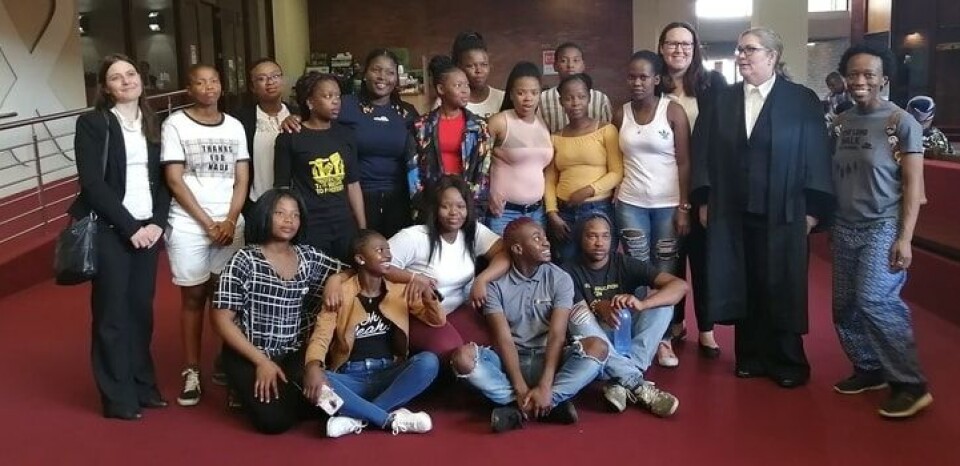Copyright : Re-publication of this article is authorised only in the following circumstances; the writer and Africa Legal are both recognised as the author and the website address www.africa-legal.com and original article link are back linked. Re-publication without both must be preauthorised by contacting editor@africa-legal.com
Holding Government to Account

In the second of a three-part series on South Africa’s Equal Education Law Centre the focus is on how the centre serves the community through its advice clinic. Tania Broughton reports.
It is said Khayelitsha, on the outskirts of Cape Town, is the largest and fastest growing township in South Africa. In Xhosa it means “Our New Home” but living conditions are bleak. Unemployment is high and, in some areas, gangsters rule the streets. But there is a beacon of light in the social justice “hub” Isivivana Centre, where the Equal Education Law Centre (EELC) operates a walk-in clinic to advise and guide those who are being wronged by education officials.
Its reach is much further than Khayelitsha. The clinic receives complaints on email, Facebook, twitter and by telephone from all over South Africa. These come from learners, parents, school governing body members and even educators. Between 2017 and 2018, the clinic serviced 450 clients. So far this year, it has dealt with 280 cases, dealing with issues including school admissions, fee exemptions, school infrastructure, corporal punishment, disciplinary processes and withholding of school reports.
In one instance, a learner’s report was withheld because his parents had not paid a “compulsory contribution” to the no-fee school. This meant he was barred from enrolling this year.
“The clinic intervened and secured both his report and admission to Grade 10,” EELC Executive Director Nurina Ally said. The clinic also intervened successfully when a learner was unfairly expelled without a disciplinary hearing.
While many matters are resolved through negotiation, EELC has had to litigate in some of its clinic matters.
Chandre Stuurman, a supervising attorney, says: “Notably at the end of 2017 our client Michelle Saffer won a landmark case on school fee exemptions for single parents.”
In this matter, Saffer, a single divorced mom of a daughter at Fish Hoek High School (on the Cape Peninsula) challenged the school’s refusal to grant her a fee exemption on the grounds that the exemption form had to be completed by both parents.
“We recognised the worrying trend throughout the country whereby many single women were unable to process their fee exemption applications because of the education departments’ view of them as a ‘family unit’ with their former spouses. With this systemic trend emerging from our community lawyering and our walk-in clinic, it became clear that a strategic litigation intervention was required,” Stuurman said.
The matter was eventually decided by the Supreme Court of Appeal which ruled that, where one parent has refused or is unable to provide income details, public schools must grant the exemption to the custodial parent, based on his or her income.
Saffer was elated: “You never allowed yourself to be bullied or intimidated, just stuck to the fight. I thank you for all you have done, what you are doing for education and for being attorneys who fight for a cause rather than focusing on the big bucks,” she said in an email.
This year, another of the clinic’s cases went to court, when the law clinic took on the cause of three schools in the Eastern Cape which did not have proper sanitation. One school had no usable toilets. Another had no water, and at the third, learners were still using dilapidated and dangerous pit latrines.
The clinic launched an urgent application against the provincial department of education which resulted in a settlement agreement, made an order of court, specifying timelines for implementation of temporary and long-term sanitation at the schools.
Tarryn Cooper-Bell, attorney of record on the matter, said: “Communities should not have to resort to courts for such relief, but we were happy to be able to assist in some way.”
The Equal Education Law Centre Trust is a registered non-profit and public benefit organisation in South Africa. The EELC is governed by a Board of Trustees chaired by Justice Catherine O'Regan. Details on how to support the EELC are available here
